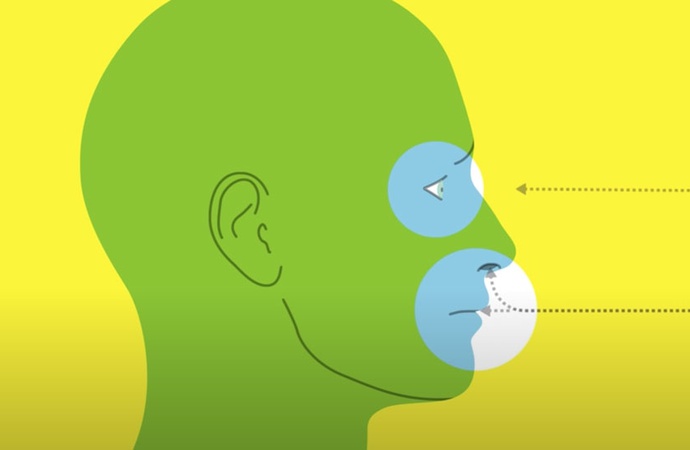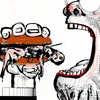What happens when you catch coronavirus?
When the virus enters your body it binds to two cells in the lungs - goblet cells that produce mucus and cilia cells which have hairs on them and normally prevent your lungs filling up with debris and fluid such as virus and bacteria and particles of dust and pollen.
The virus attacks these cells and starts to kill them - so your lungs begin to fill with fluid making it hard for you to breathe. This phase of the disease is thought to last about a week.
At this point your immune system will start to kick in and fight off the invaders. You will develop a fever and your high body temperature will create a hostile environment for the virus. You will start to get rid of the mucus in the form of coughing and a runny nose.
But in some people - particularly the elderly and those with other health conditions - the immune system can go into overdrive. As well as killing the virus it also starts to kill healthy cells.
This heightened immune response can trigger a “cytokine storm” - white blood cells activate a variety of chemicals that can leak into the lungs, which along with the attack on the cells damages them even further. Scans of the lungs show “ground-glass” opacity and then “crazy paving” patterns, as they fill with mucus making it harder and harder to breathe.
Bacterial infections can also take hold at this point and your weakened immune system will struggle to fight them off.
This heightened immune response can lead to organ failure and death. It was a common cause of mortality in the Spanish Flu of 1918.
Some people who recovered from severe acute respiratory syndrome (Sars) which swept the world in 2002 to 2003 had long-term respiratory problems as their lungs were permanently damaged. Covid-19 is similar to Sars in some respects, although is much less lethal, so those who have recovered from more serious symptoms may also suffer some long-term effects.
While people with weakened immune systems and the elderly are more likely to become critically ill the younger and healthy in China and elsewhere have also succumbed to the virus - this is because none of us have any immunity to this new disease.
However, one interesting factor is that children do not seem to be falling victim to Covid-19 - just 2.4 per cent of all those who have contracted the disease are 18 and under and the vast majority have mild symptoms. In other respiratory diseases such as flu children are key disease transmitters.
It is still unclear whether children are less susceptible to the disease or whether they just have very mild or asymptomatic infections. According to the World Health Organization there has been no confirmed case of an adult picking up Covid-19 from a child.


















































